MLEA concludes with a conference
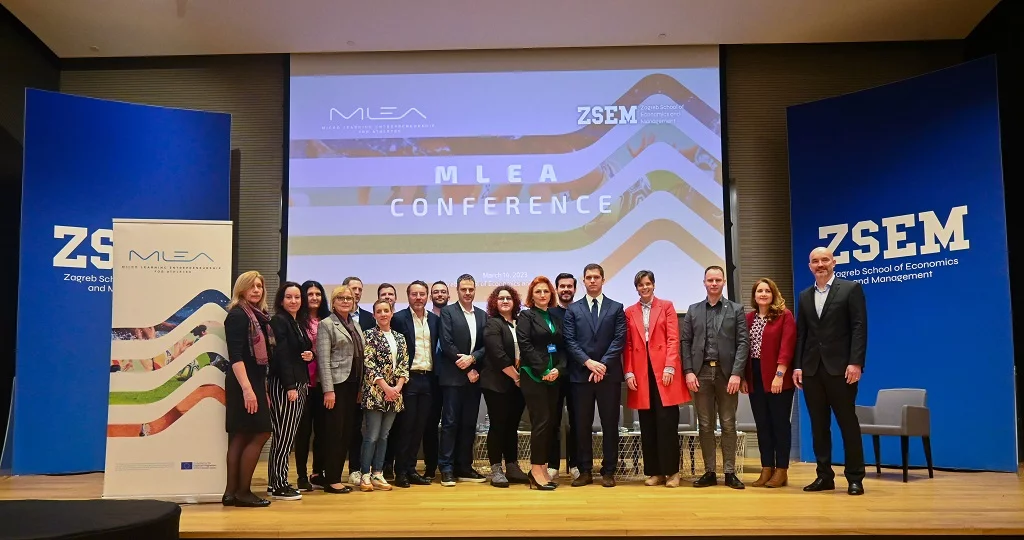
After two years of consecutive and hard work on the analysis of athletes behaviour in the context of developing of entrepreneurial spirit, knowledge and competencies as well as creating an online tool for promoting it, the final conference and partners meeting of the Micro Learning Entrepreneurship for Athletes (MLEA) project took place on 13-14th of March at the Zagreb School of Economics and Management, to mark the conclusion of the project.
The MLEA conference gathered students, athletes, former athletes and different stakeholders and important people from the academic and sports world of Croatia.
Opening the conference and giving the warm welcome to the attendees was Mr Mato Njavro, Dean of the Zagreb School of Economics and Management, giving a short presentation of the idea behind the project, pointing the good work done on behalf of all the partners involved. Mr Njavro stated his support and satisfaction within the project and the importance of dual career in the academic and sport world.
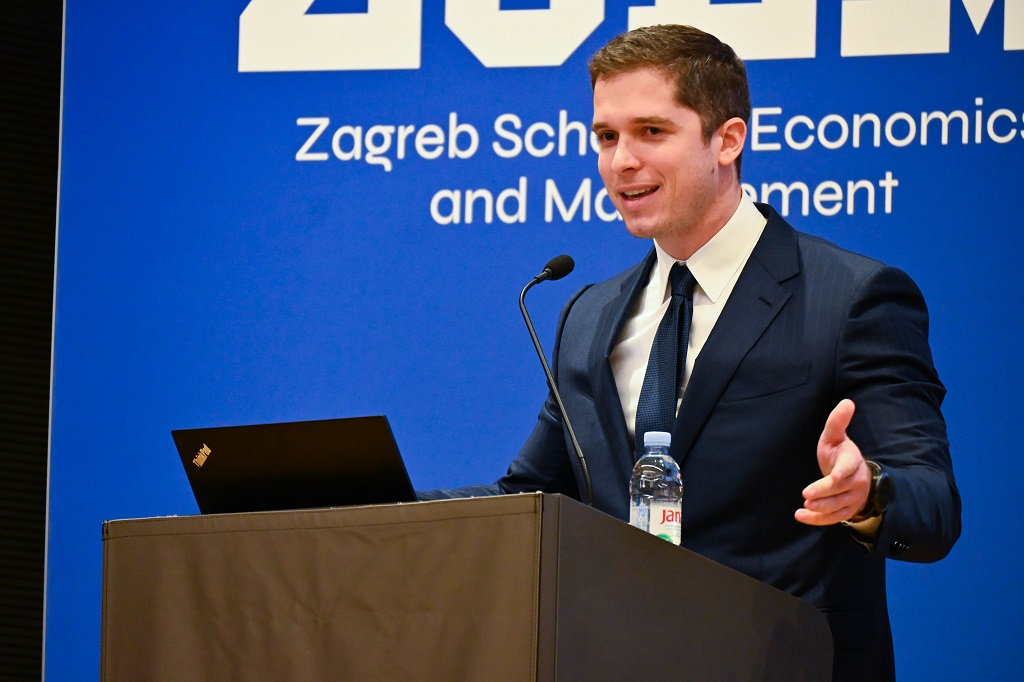
Presenting and speaking about the importance of sport and dual career opportunities in Croatia, and using sport as a tool to promote education, success, inclusivity, as well as of what importance the support for athletes on a local level is, were Ms Nikolina Brnjac Minister of Tourism and Sport of Croatia and Ms Kolinda Grabar-Kitarovic, former President of Croatia and independent member of the International Olympic Committee.
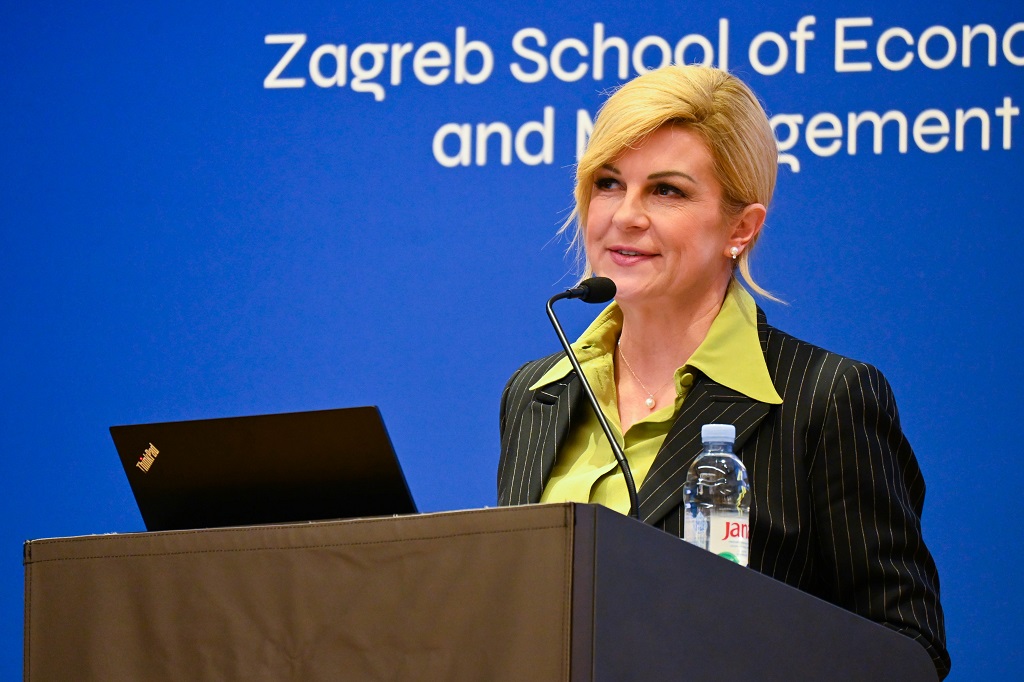
Next to present all the partners involved was Ms Dubravka Kovacevic, coordinator of the MLEA project, sharing background of the partners, the goals and the results around the project, as well as the reason and the idea behind the realisation of the project itself.
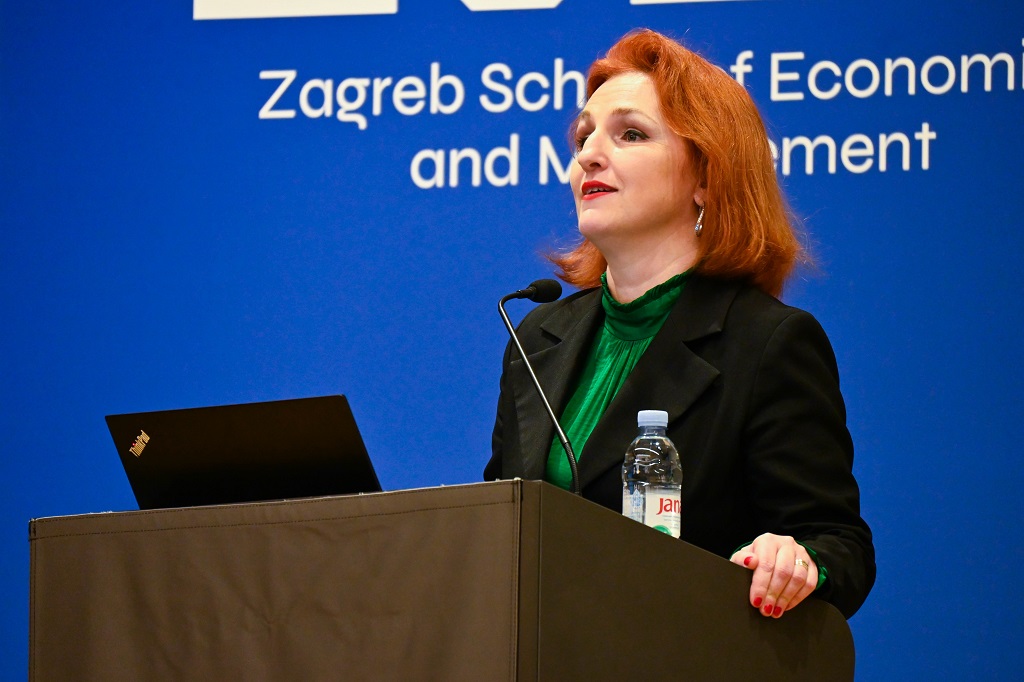
Following on the program was the presentation of Mr Martin Carlson-Wall from Stockholm School of Economics, who as a representative of one of the partners involved, gave a short recap and explanation of the analysis, the studies and the scientific data around which the project and its outputs are build. Mr Carlson-Wall was elaborating on the results of the survey, the interest and benefits of dual career opportunities for current and former athletes.
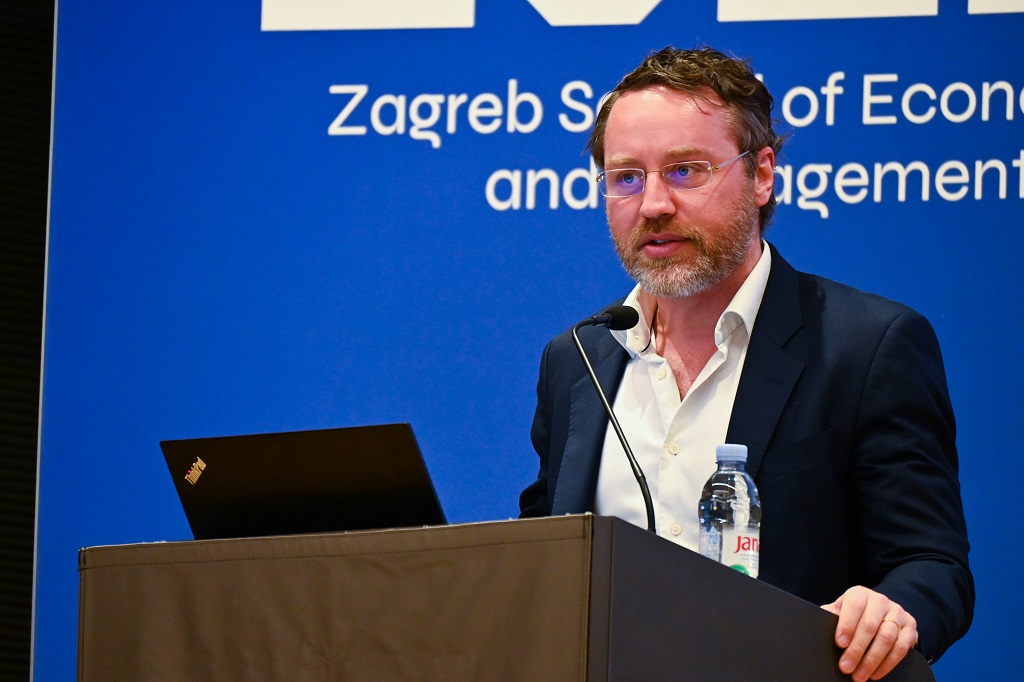
Giving an explanation of the Canvas model, incorporated in the online modules, as one of the outputs of the project, the structure on which are the modules based, the steps incorporated in this model, the corelation of every step in building your own business idea and the benefit of following each part, was Mr Sascha Schmidt from WHU.
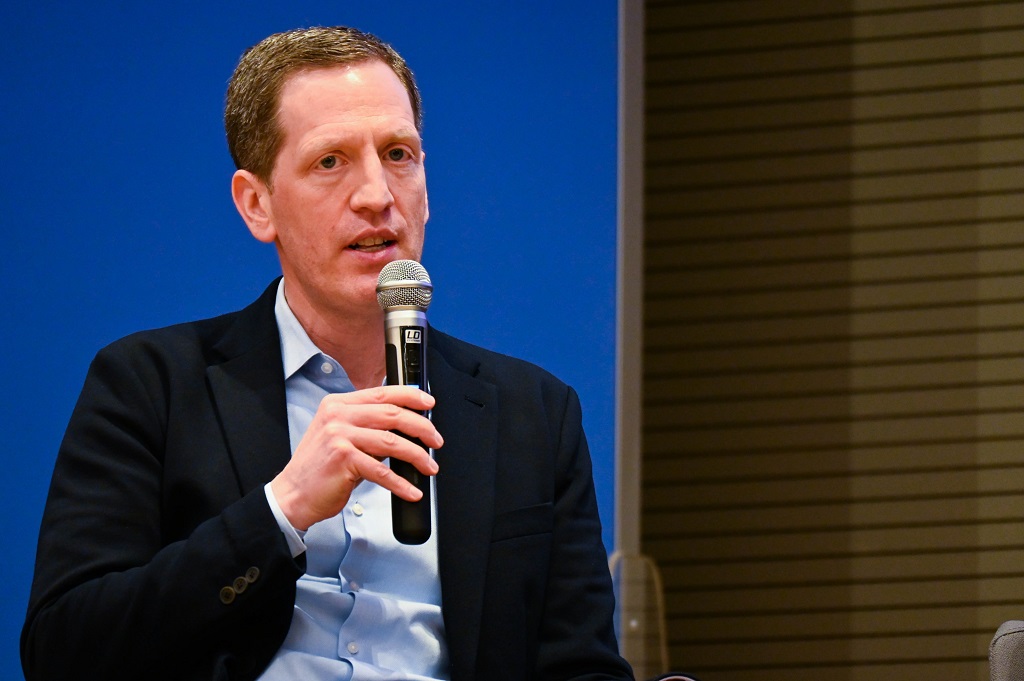
Ms Mirna Korican Lajtman was then presenting the gamified platform where the modules are going to be based, the way the platform will function, the steps of the course, the details about each of the modules, the scoring mode, as well as the rewarding process after the course is completed. This gamified platform, as a result of the MLEA project will use gamification aspects to boost athlete engagement and will enable on-demand online microlearning by providing bite-sized, short learning units, available for everyone interested in pursuing a career after their athletic career, giving them basic idea of how to start their own business.
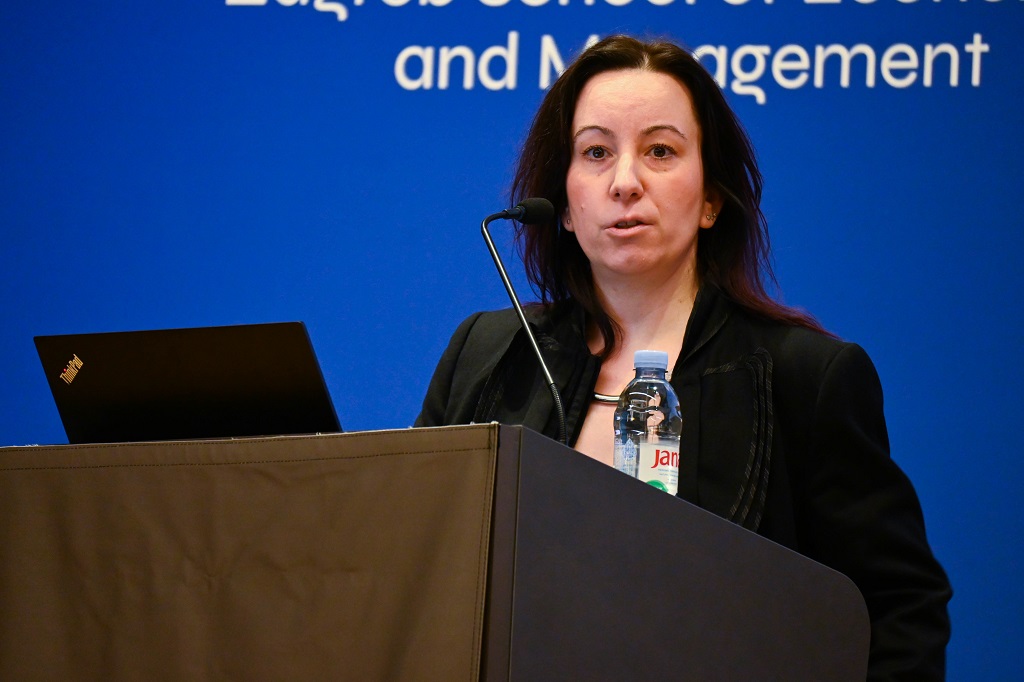
After the presentations, the conference attendees had the chance to follow on two panel discussions, the All Star panel and the Young Hopeful panel.
The guests of the All Star Panel were debating about the European sports system, the sustainability of it, the European model of sport and its preservation, as well as sharing personal stories of the next step after the elite careers and the afterlife of former top athletes. The discussion also involved opinions on the future steps for making dual career opportunities even more visible, best practice examples from the academic part of the guests and how different sports models support dual career opportunities for athletes after their career ends.
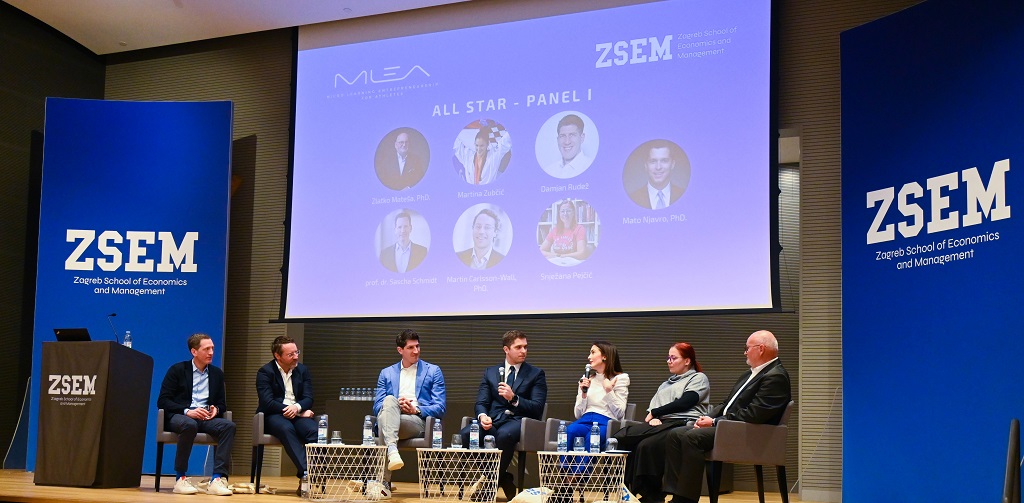
The Hopeful Young Panel guests shared their personal stories with the attendees of the conference, speaking about their challenges to align their school and sport life, thoughts about what after they end their careers, the support and the obstacles on their way, as well as the already well functioning opportunities and support system they are experiencing.
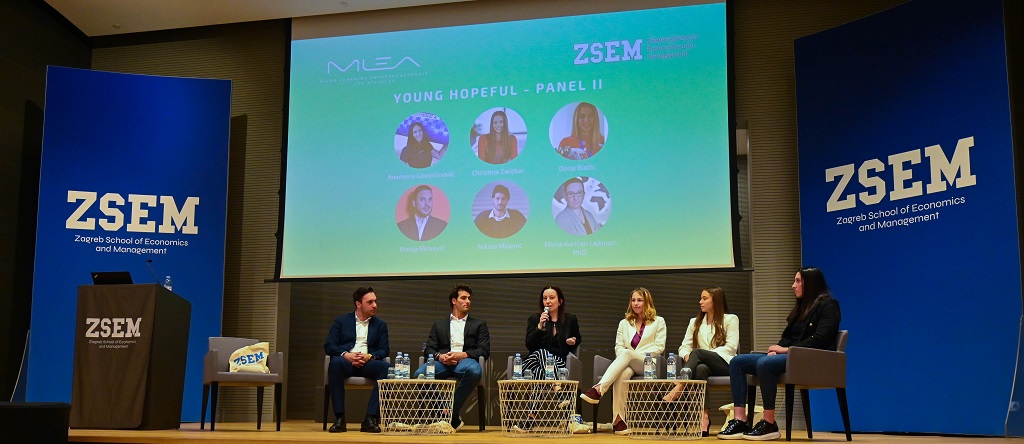
With the ending of the project and the final MLEA conference, the primary focus of the project itself to promote education in an through sports and to support the implementation of the EU Guidelines on Dual Career of Athletes, was successfully completed, having the tailor made modular curriculum on entrepreneurship for athletes and former athletes, as a prove of the successful realisation of the project goals and outputs.
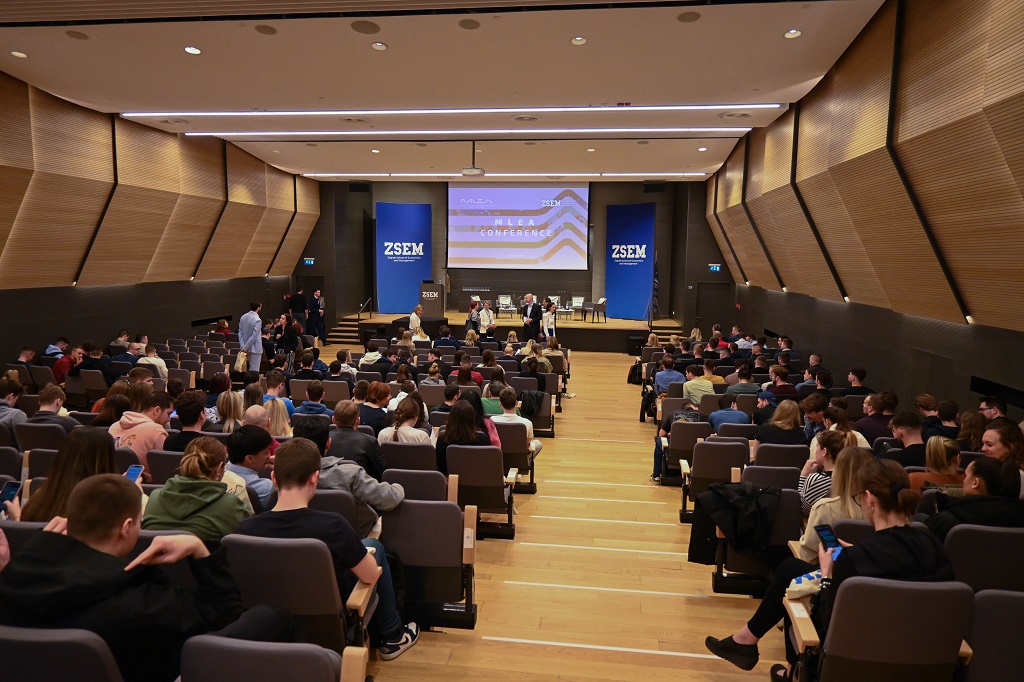
Prior to the MLEA conference, partners of the Micro Learning Entrepreneurship for Athletes (MLEA) project met in Zagreb on March 13th, for the 7th and final Transnational partners meeting.
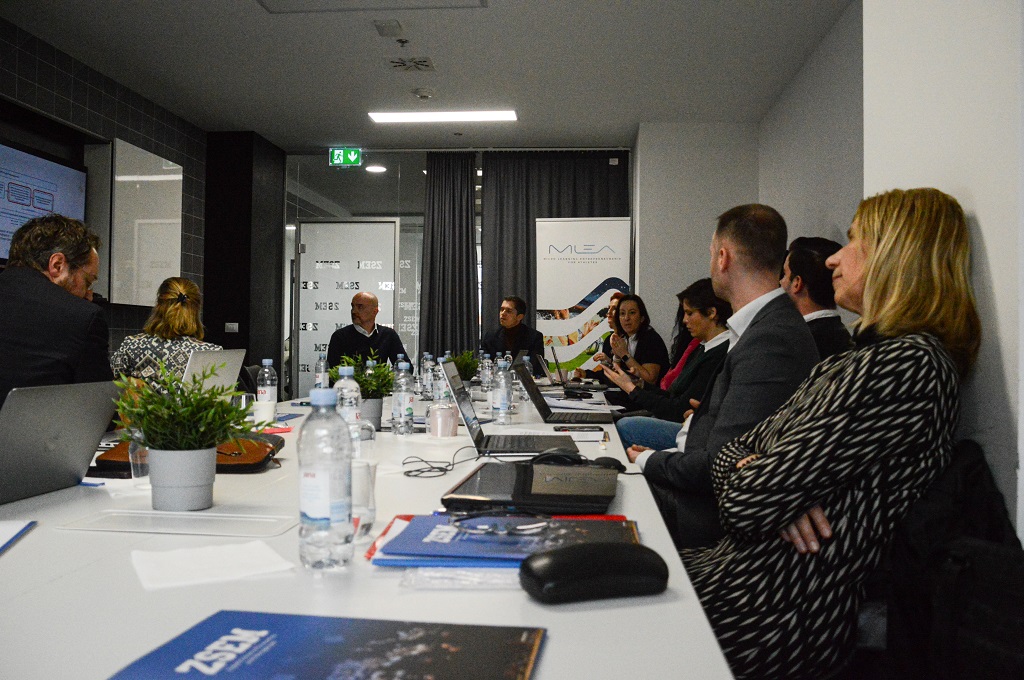
The partners gave one final overview of the project, the final outcomes, the gamified platform, with a special address on the disemination of the learning modules, in order to reach a significant number of athletes and stakeholders.
MLEA project is co-financed by the Erasmus+ programme of the European Union, and is led by Zagreb School of Economics and Management (CRO), with project partners including Stiftelsen Stockholm School of Economics Institute for Research (SWE), WHU - Otto Beisheim School of Management (GER), Croatian Olympic Committee (CRO), Olympic Committee of Bosnia and Herzegovina (BIH), Olympic Committee of Serbia (SRB), Olympic Committee of Slovenia (SLO) and the EUSA Institute (SLO). For more information, please see www.mlea.eu
